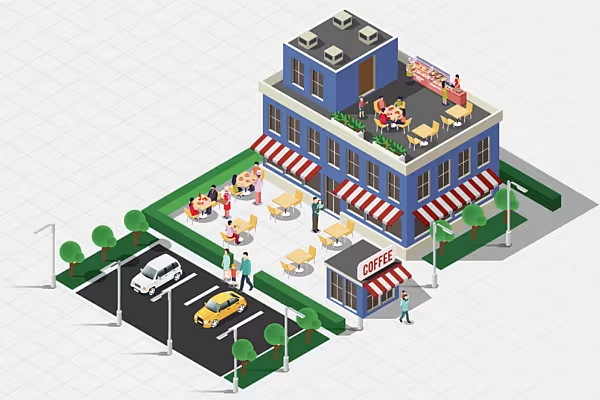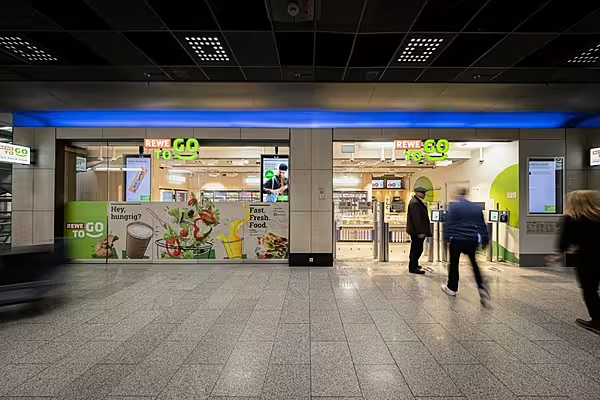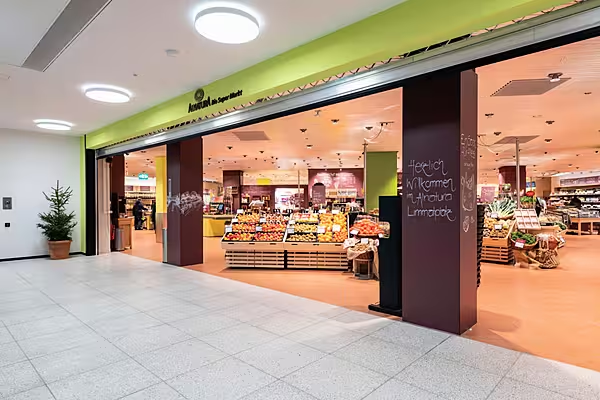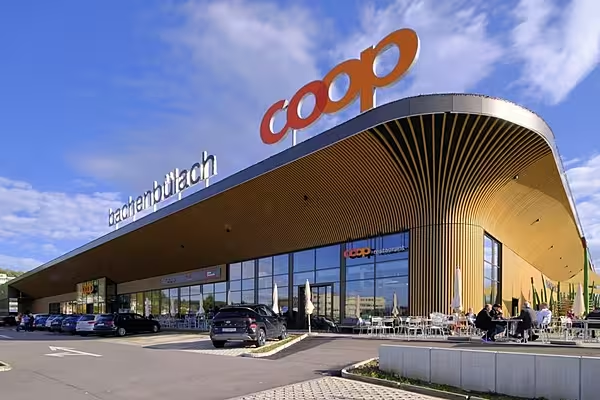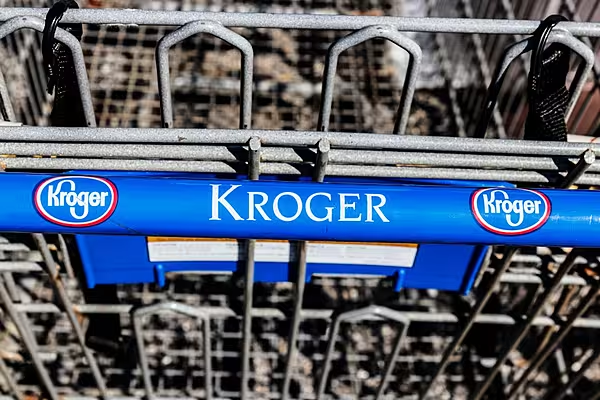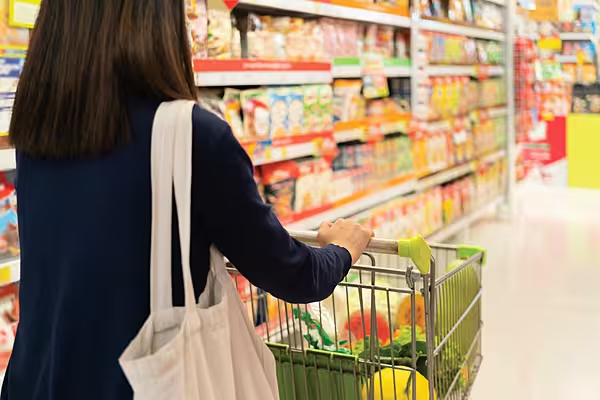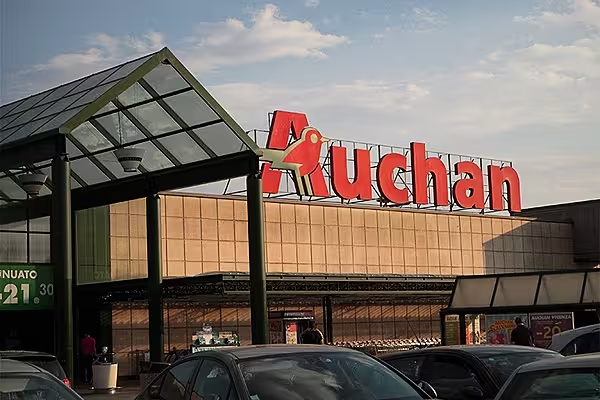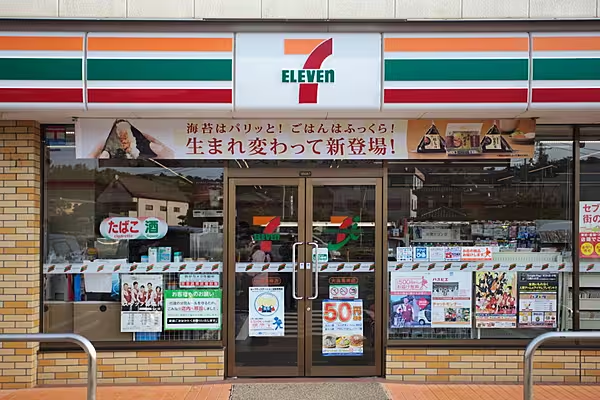Earlier this year, wholesale giant Metro AG launched a new digital platform for the hospitality industry – My Sustainable Restaurant – which has been developed to enable those in the HoReCa sector to recognise and, more importantly, monetise sustainability opportunities.
My Sustainable Restaurant addresses some of the main topics of interest for businesses when it comes to sustainability, including water and energy management, responsible sourcing, general waste, plastic and packaging waste, food waste, sustainable menu development, social issues and safe food, offering practical advice that can be applied, even in a busy restaurant environment.
The launch of My Sustainable Restaurant forms part of the German operator’s broader ESG strategy, under which the group has pledged to become completely climate neutral across its operations by 2040, commit to only using reusable, recyclable and compostable alternatives to plastic by 2025, and reduce food waste across its operations by 50% by the same date, among other targets.
At the recent EuroCommerce 30th-anniversary event in Brussels, ESM caught up with Lena vom Stein, head of corporate responsibility at Metro AG, to learn more about My Sustainable Restaurant and the group’s broader ESG strategy.
Integrating Sustainability
“The My Sustainable Restaurant platform aims to support our customers in integrating more sustainability into their operations,” vom Stein explains. “We recognise that customers are increasingly demanding sustainability – not just in terms of product assortment, but also regarding packaging waste and food waste, which are major concerns for those in gastronomy.”
Aside from fitting into businesses’ daily routines – which itself can be challenging, given the fast-paced HoReCa sector – a key focus of My Sustainable Restaurant is around ensuring that restaurateurs, hoteliers, etc. understand that this can help alleviate cost savings and, in some areas, drive additional profits.
“If sustainability is not profitable, it’s not worth doing. That is why the platform not only focuses on why a business should seek to become more sustainable, but also what the benefits are from doing it.
“For example, at Metro, plastic and packaging is a key focus area. So, across our own brands, we are constantly working on reducing plastic in our packaging and optimising our own logistical processes. That way, not only can we see the benefits of having less plastic and more packets on a pallet, what arrives at our customers’ businesses is cheaper and easier to dispose of. So, if you do it right, you can have a win-win.”
Packaging Commitment
Optimising the sustainability credentials of packaging is an important aspect of both the My Sustainable Restaurant initiative and Metro’s wider ESG aspirations. The group’s Metro Packaging Commitment has seen the wholesaler pledge to eliminate 100% of PVC, PVdC and expanded polystyrene (EPS) from its operations by 30 September of this year.
“In addition, where we are looking to replace plastic, we strive to use more sustainable materials,” says vom Stein. “For instance, paper and cardboard can be viable alternatives, however, even in these cases, certain criteria must be met: the materials should either have recycled content, be recyclable, or come from certified sources.”
Introducing more reusable packaging is also on the wholesaler’s agenda, she explains, building on the long-standing standards in fresh produce, where crates are reused endless times.
“We recently tested a project for our fish and seafood platform using reusable boxes,” says vom Stein, “but these are not good enough for wider use at the moment because we have very high standards for quality and hygiene.
“You have to be extra careful when dealing with food. We try to have as little packaging as possible, but as much as necessary to protect the product. We have a team of packaging engineers that are focused on working out the best solutions.”
The Food Waste Conundrum
At the same time, Metro’s network extends right around the world, and each country has its own set of standards when it comes to tackling food waste.
As vom Stein’s colleague Başak Babaoglu de Bruyne, manager of EU affairs at Metro, tells ESM, more focus is needed on a European level, to ensure that businesses that want to contribute to reducing food waste – for example, through the donation of surplus food – should be able to do so efficiently, and at minimal cost.
“In some countries, we face tax issues when it comes to donating surplus food,” she explains. “Even if we don’t intend to sell the surplus, but, rather, donate it, we still have to pay taxes.
“The treatment of surplus food varies within the EU. In some countries, this surplus food is exempt from VAT, while in others it is not. This inconsistency poses a significant barrier to donating surplus food across the EU. We need an EU-wide approach – an EU-wide tax exemption – to enable us to donate food to charities without having an additional VAT charge.”
Read More: Metro AG Reduces Food Waste, Increases Food Donations
Think Small And Dream Big
While several of Metro’s sustainability ambitions will take significant investment to achieve – indeed, the wholesaler recently committed €1 billion towards energy efficiency, the conversion of refrigeration to natural refrigerants, and a number of other initiatives – vom Stein believes that, through making small gains in all aspects of the business, serious progress can be made.
“I’ve been working in sustainability for quite a long time now, and I’ve always hoped for that big breakthrough – that one thing that will make a significant impact and reduce our footprint,” she explains, “however, I’ve also come to realise that it’s the little things that truly make a difference. You might think that using reusable bags or opting for smaller packaging doesn’t have a significant impact, but every bag and every piece of packaging that contains less plastic counts.
“It’s the collective action of each and every one of us, working in our daily business, to actively reduce our environmental impact and strive for better sustainable management.
“In fact, the ultimate goal should be that Metro won’t need a ‘corporate responsibility’ department any more in the future because every department and every individual within our organisation is working independently and taking self-responsibility for sustainable management. Working together is essential.”
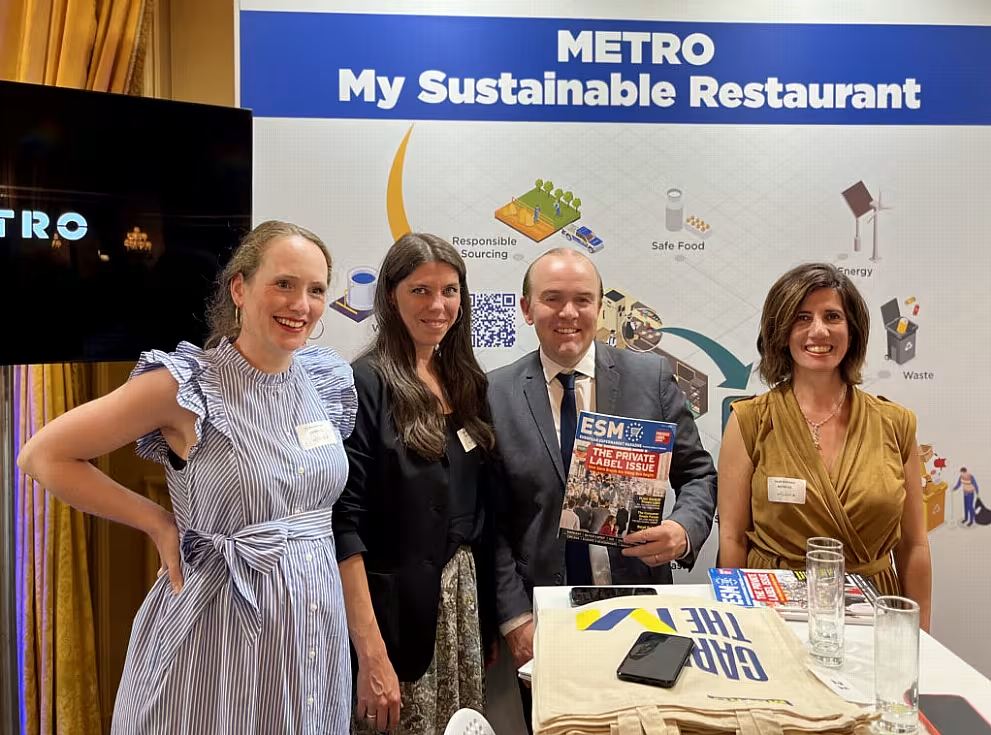
Illa Brockmeyer, head of EU and international affairs, Metro AG; Lena vom Stein, head of corporate responsibility at Metro AG; Stephen Wynne-Jones, editor,
ESM: European Supermarket Magazine; and Başak Babaoglu de Bruyne, manager of EU affairs, Metro AG.© 2023 European Supermarket Magazine – your source for the latest retail news. Article by Stephen Wynne-Jones. Click subscribe to sign up to ESM: European Supermarket Magazine.
